
Art Nouveau - II
Gustav Klimt
1862 – 1918

Gustav Klimt (July 14, 1862 – February 6, 1918) was an Austrian symbolist painter and one of the most prominent members of the Vienna Secession movement. Klimt is noted for his paintings, murals, sketches, and other objets d'art. Klimt's primary subject was the female body, and his works are marked by a frank eroticism. Amongst his figurative works, which include allegories and portraits, he painted landscapes. Among the artists of the Vienna Secession, Klimt was the most influenced by Japanese art and its methods.
Gustav Klimt took courses at the School of Decorative Arts in Vienna and began work as a painter and decorator of public buildings, together with his brother and other artists. The style they followed was an international form of Symbolism. In 1897, he was the leading figure in the foundation of the Viennese Secession, and after a few years he had become the best representative of the Modern style. In his last years, he showed an appreciation of the avant-garde tendencies of the Expressionists. His extraordinary talent ensured the success of work that contained various expressive materials in one composition, recalling Gothic and Byzantine traditions while also anticipating the multimedia art of the 20th century.

Fable, 1883
.jpg)
Idylle (Idylls) 1884

Allegory, 1886

The Theatre in Taormina, 1886-88

The Beethoven Frieze: The Hostile Powers, 1902

Pallas Athena, 1898

Stiller Weiher (Egelsee bei Golling, Salzburg) (Tranquil Pond), 1899
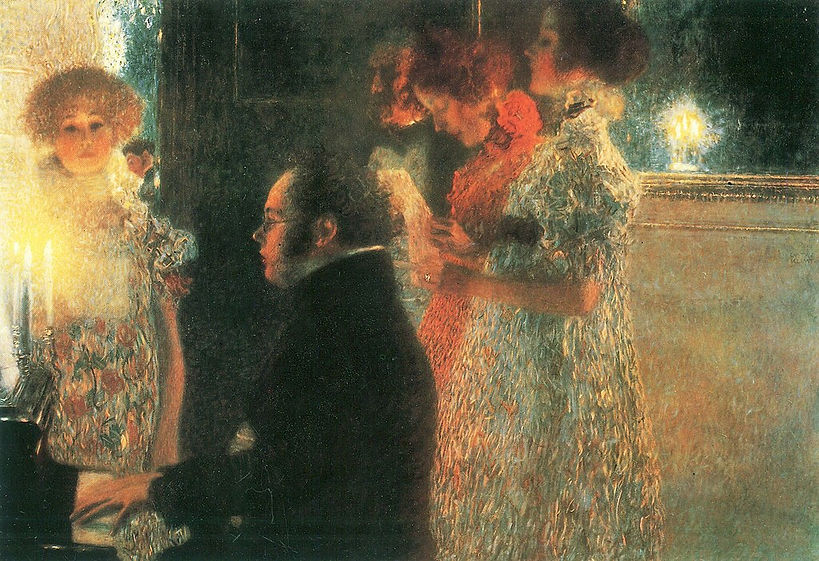
Schubert am Klavier (Schubert at the Piano), 1899

Nuda Veritas, 1899
.jpg)
Judith and Holofernes. 1903

Judith II

Adele Bloch-Bauer I (1907)

The Kiss - 1907-1908.

Fulfilment, a sketch for the 1905–1909

Danae, 1907
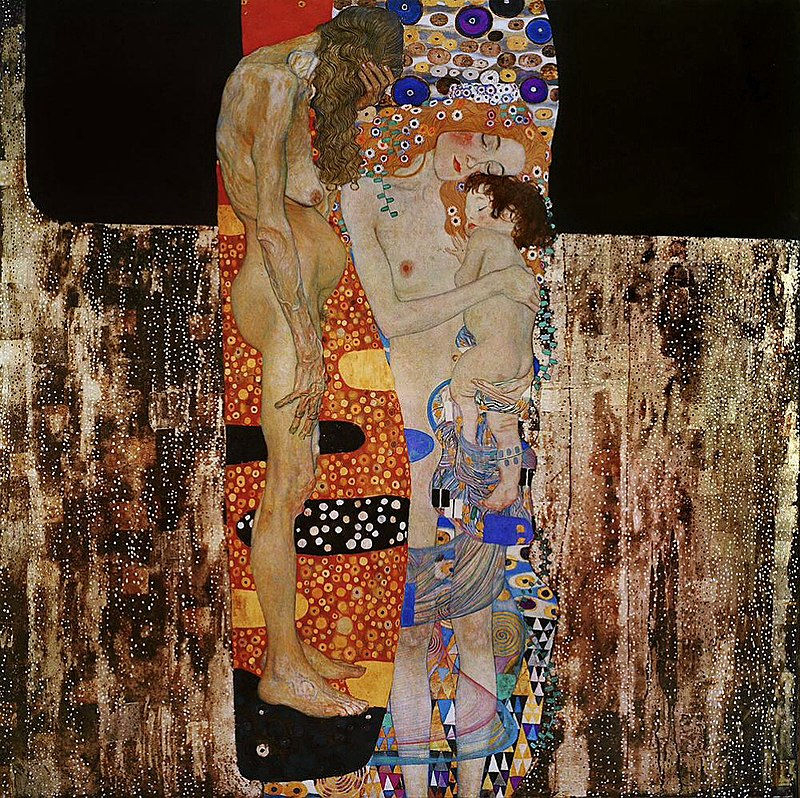
The Three Ages of Woman 1905

Portrait of Fritza Riedler, 1906

Hope II, 1907–08
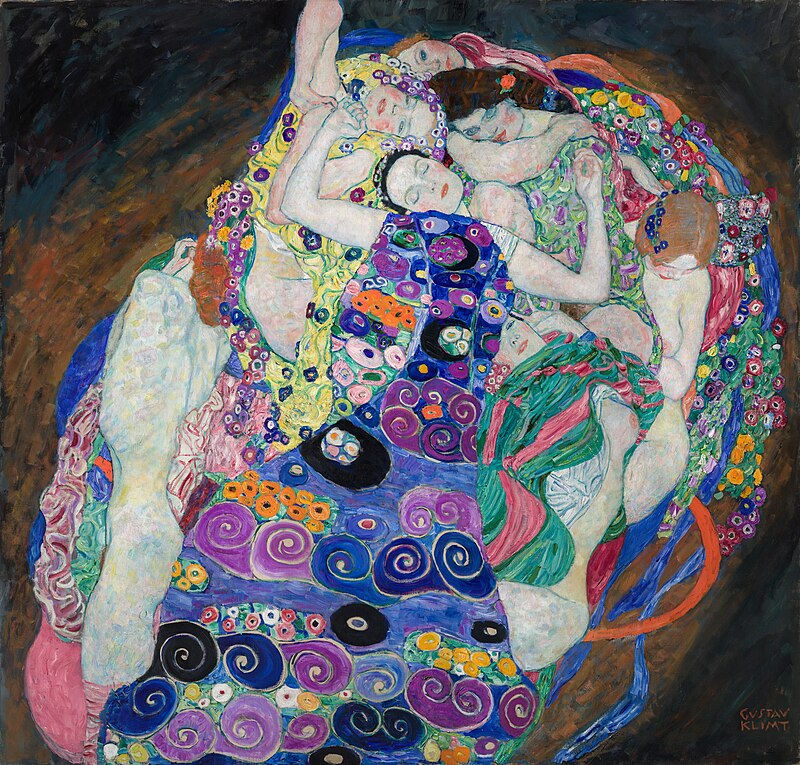
The Maiden, 1913

Girlfriends or Two Women Friends, 1916–17
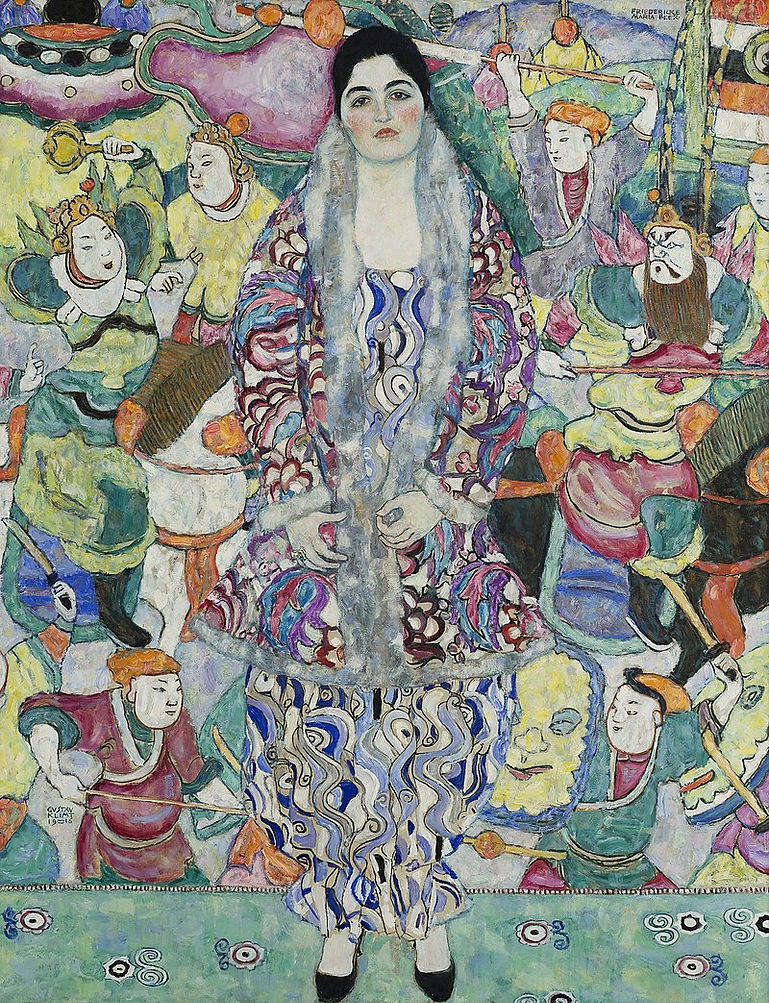
Portrait of Friedericke Maria Beer [de; ru; uk], 1916

Sonja Knips, 1898
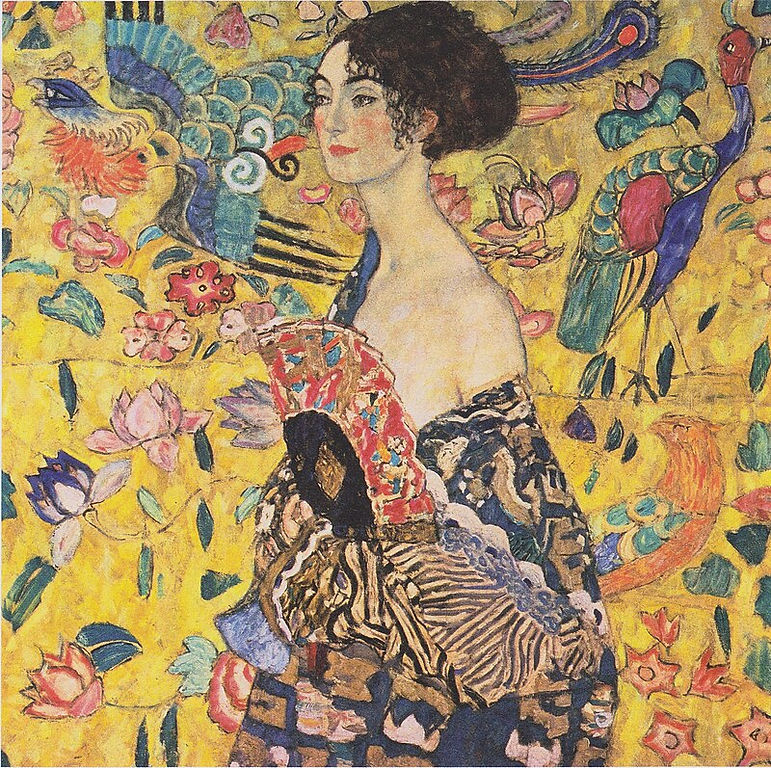
Lady with a Fan, c. 1917–18

Gustav Klimt

ROSEBUSHES UNDER TREES. 1905.

Beech Grove I, 1902

Oberösterreichisches Bauernhaus

Avenue in Schloss Kammer Park 1912

Farm Garden with Sunflowers

Schloss Kammer am Attersee

Farm Garden with Crucifix

The House of Guardaboschi
Konstantin Somov
1869 – 1939
Konstantin Andreyevich Somov (November 30 [O.S. November 18] 1869 – May 6, 1939) was a Russian artist associated with the Mir iskusstva ("World of Art") movement that began in the last decade of the 19th century. After the Russian Revolution, he eventually emigrated to Paris, along with other prominent figures in the Russian arts. In private life, he had a longtime, younger male companion, Methodiy Lukyanov, and an ambiguous artistic and personal relationship with a young boxer, Boris Snezhkovsky, whom he painted many times. In the 21st century, his paintings have sold in the millions of dollars. In 2007, Somov's The Rainbow sold at Christie's London for GBP 3,716,000 (USD 7.33 million), an auction record for a Russian work of art.

Self-portrait

Lady in Blue (Elizaveta Martynova), 1900.
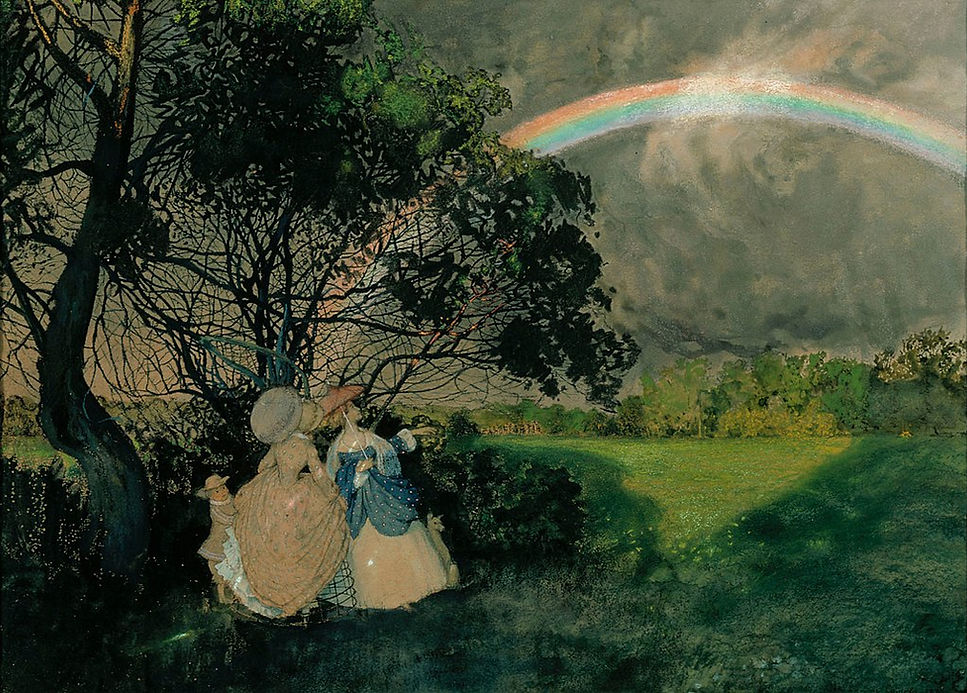
Rainbow, 1897

A Ridiculed Kiss, 1908

Pierrot and lady, 1910

Love letter, 1911

La Petite Langue de Colombine, 1915

Illustration for Daphnis and Chloe, 1930

The Rainbow, 1927
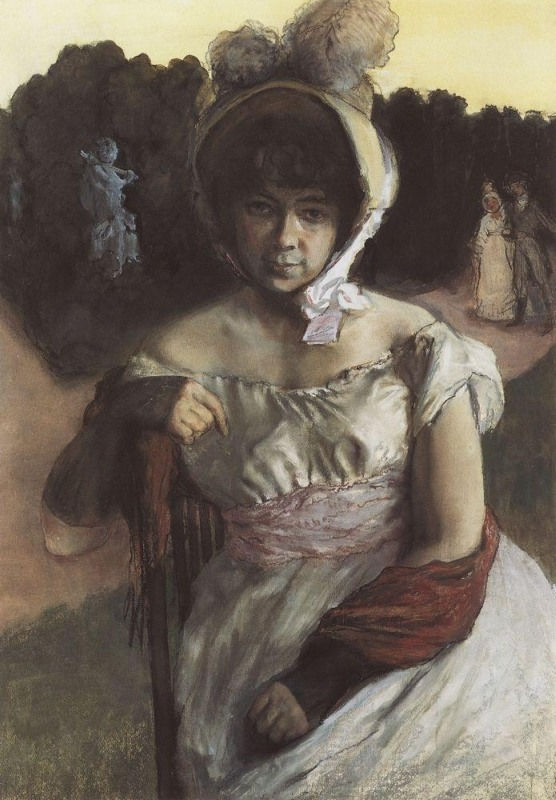
Anna Karlovna Benois, 1896

Self-portrait, 1898

Alexander Blok, 1907

Mikhail Kuzmin, 1909

Euphimia Pavlovna Nosova, 1911

Sergei Rachmaninoff, 1925

Two peasant girls and a rainbow

Holiday near Venice

Two ladies in the park, 1919

View through a window

Le Livre de la Marquise

Le Livre de la Marquise
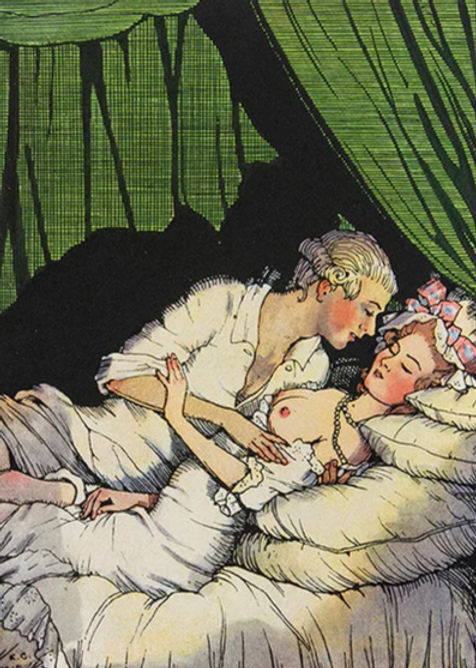
Le Livre de la Marquise

Le Livre de la Marquise

Le Livre de la Marquise

Le Livre de la Marquise

Le Livre de la Marquise

Le Livre de la Marquise
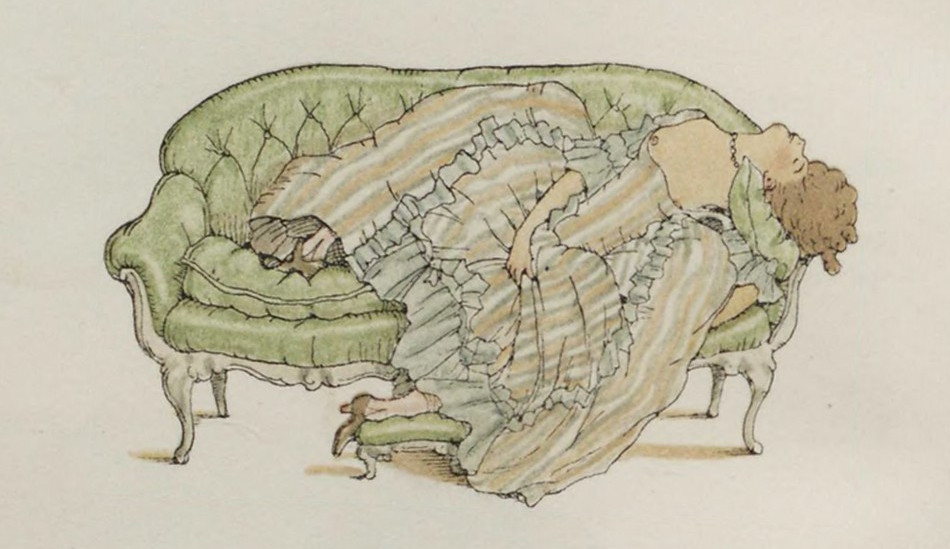
Le Livre de la Marquise

Le Livre de la Marquise

Le Livre de la Marquise

Le Livre de la Marquise

Le Livre de la Marquise

Le Livre de la Marquise

Le Livre de la Marquise

Le Livre de la Marquise

Le Livre de la Marquise

Le Livre de la Marquise
Aubrey Beardsley
1872 – 1898

Aubrey Vincent Beardsley (21 August 1872 – 16 March 1898) was an English illustrator and author. His black ink drawings were influenced by Japanese woodcuts, and depicted the grotesque, the decadent, and the erotic. He was a leading figure in the aesthetic movement which also included Oscar Wilde and James McNeill Whistler. Beardsley's contribution to the development of the Art Nouveau and poster styles was significant despite his early death from tuberculosis. He is one of the important Modern Style figures.
Self Portrait
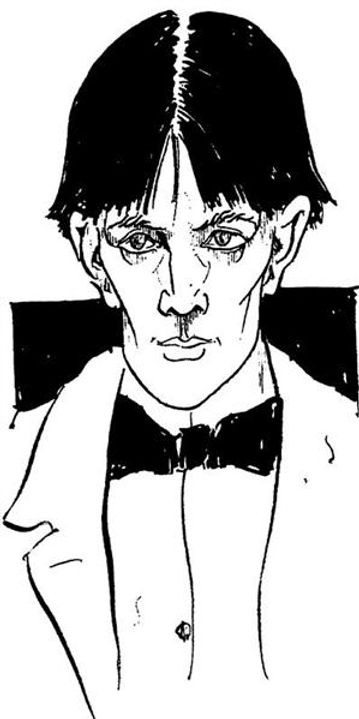
Self Portrait
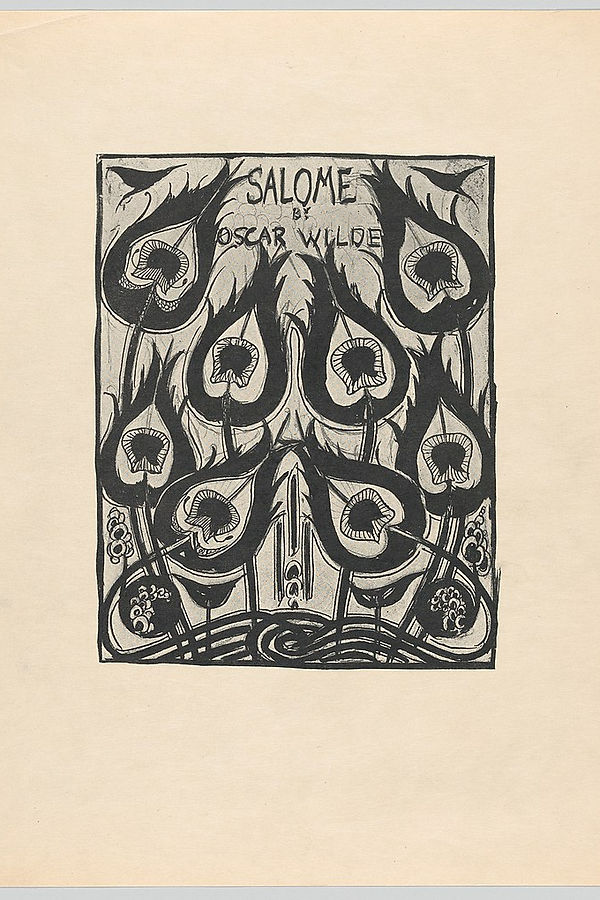
llustration for 'Salome' by Oscar Wilde

llustration for 'Salome' by Oscar Wilde

llustration for 'Salome' by Oscar Wilde

llustration for 'Salome' by Oscar Wilde

llustration for 'Salome' by Oscar Wilde
llustration for 'Salome' by Oscar Wilde
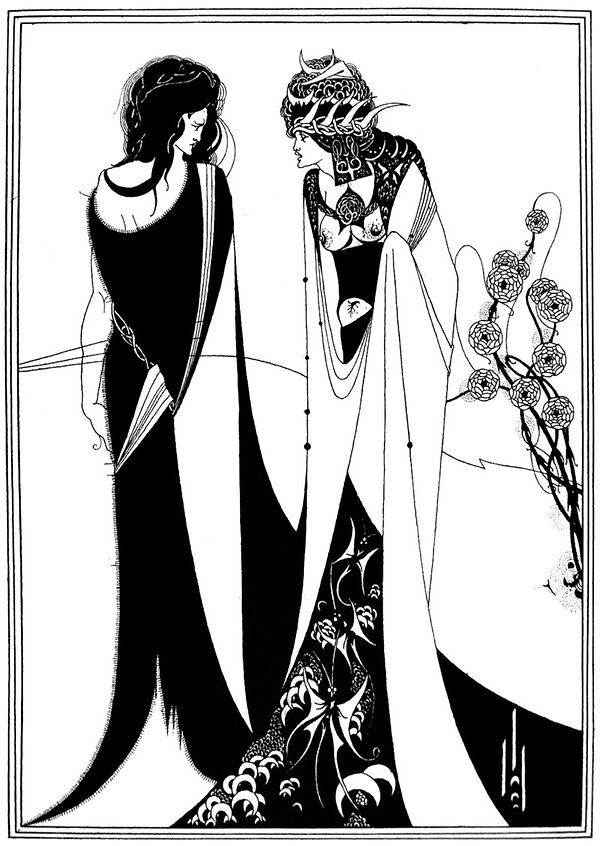
llustration for 'Salome' by Oscar Wilde

llustration for 'Salome' by Oscar Wilde

llustration for 'Salome' by Oscar Wilde
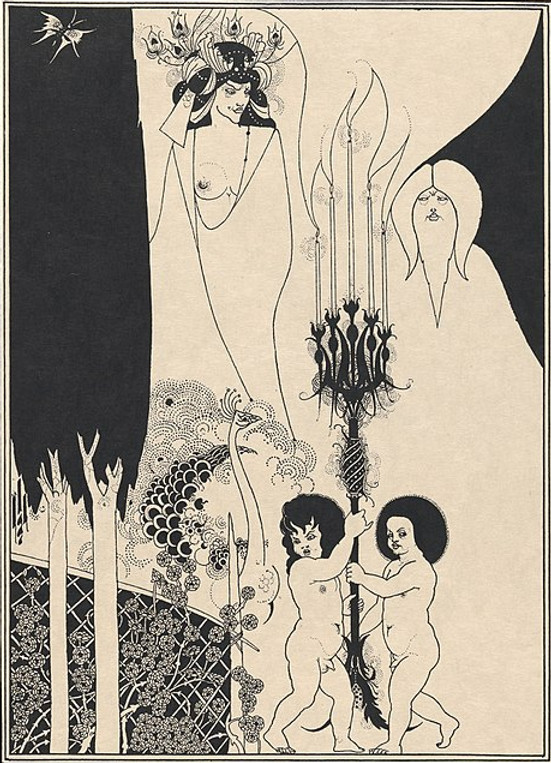
llustration for 'Salome' by Oscar Wilde
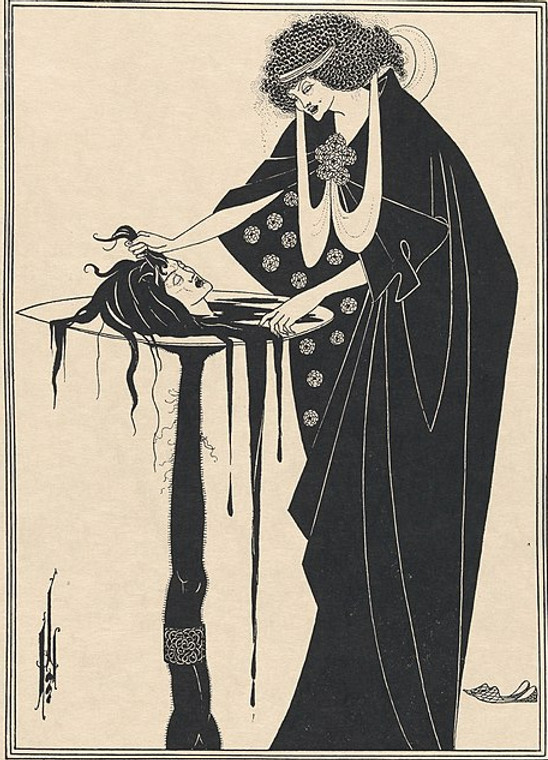
llustration for 'Salome' by Oscar Wilde

llustration for 'Salome' by Oscar Wilde

llustration for 'Salome' by Oscar Wilde

llustration for 'Salome' by Oscar Wilde
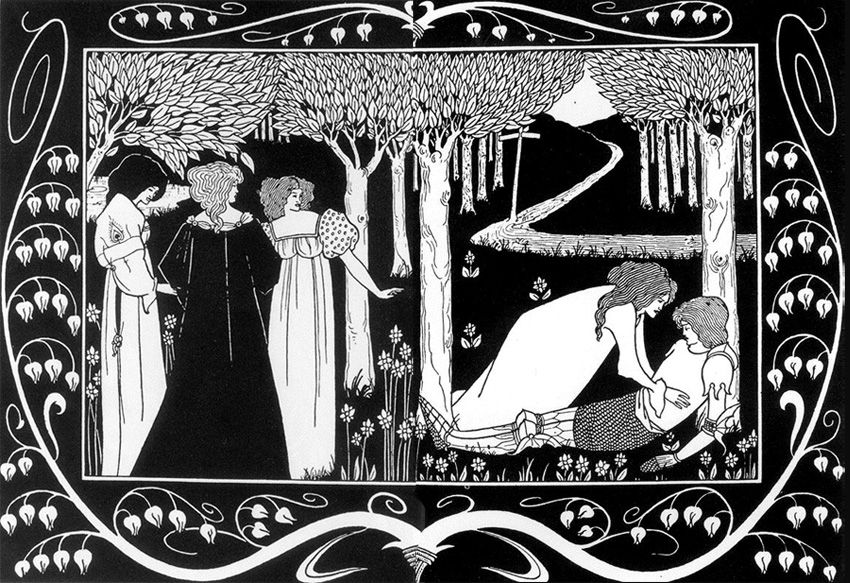
Illustration from Thomas Malory's Le Morte d'Arthur, 1894

Illustration from Thomas Malory's Le Morte d'Arthur, 1894

Illustration from Thomas Malory's Le Morte d'Arthur, 1894

Illustration from Thomas Malory's Le Morte d'Arthur, 1894

Illustration from Thomas Malory's Le Morte d'Arthur, 1894

Illustration from Thomas Malory's Le Morte d'Arthur, 1894
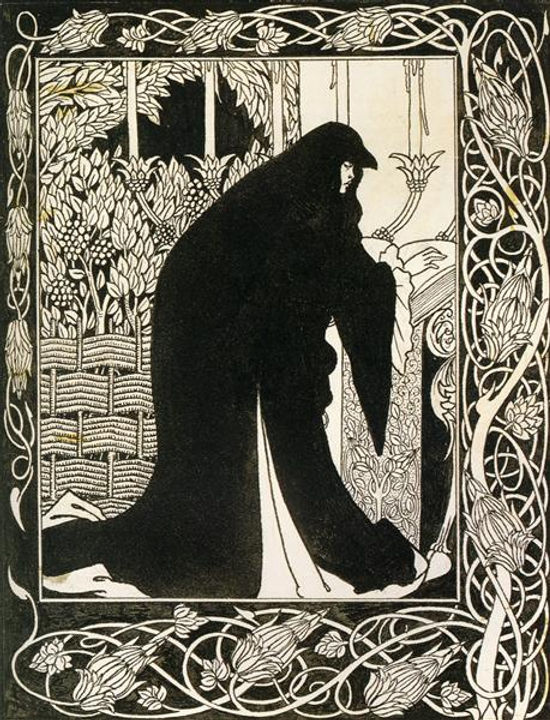
Illustration from Thomas Malory's Le Morte d'Arthur, 1894

Illustration from Thomas Malory's Le Morte d'Arthur, 1894

Illustration from Thomas Malory's Le Morte d'Arthur, 1894

Illustration from Thomas Malory's Le Morte d'Arthur, 1894

Illustration from Thomas Malory's Le Morte d'Arthur, 1894

Illustration from Thomas Malory's Le Morte d'Arthur, 1894

Illustration from Thomas Malory's Le Morte d'Arthur, 1894

Illustration from Thomas Malory's Le Morte d'Arthur, 1894

Masquerade, cover design for The Yellow Book, vol. 1, 1894, painting by Aubrey Vincent Beardsley.

Illustration for The Masque of the Red Death, 1894–5, painting by Aubrey Vincent Beardsley.

The Cave of Spleen, from The Rape of the Lock, 1896

Illustration to "Siegfried", Act II

Lucians Strange Creatures

The Kiss of Judas

The Toilet

Lysistrata Haranguing the Athenian Women
Gerda Wegener
1886 - 1940
Gerda Gottlieb Wegener Porta (15 March 1886 - 28 July 1940) was a Danish illustrator and painter.
Originally from the provinces and the daughter of a clergyman, she moved to Copenhagen to pursue her education at the Royal Art Academy, and married fellow artist Einar Wegener (1882-1931) in 1904. After moving to Paris in 1912, she found much success both as a painter and illustrating for Vogue, La Vie Parisienne, Fantasio, and many other magazines. As she found fame in Paris, Gerda also developed a following in her home country. She held exhibitions at Ole Haslunds gallery in Copenhagen at regular intervals. Her career relied on a phenomenal talent but perhaps even more so on her notorious diligence, and the advantages her unusual marriage brought her.
Einar Wegener, who by many at the time was considered a more talented artist, toned down his own work and profile to help his wife in her artistic endeavors. In a female guise, "Lili", he became Gerda's favorite model. Einar Wegener eventually came out as a transsexual woman, and had the first publicly known sex reassignment surgery, in 1930, taking the name Lili Elbe. Gerda Wegener supported Elbe throughout her transition. The king of Denmark declared the Wegeners' marriage null and void in October 1930.
In 1931, Gerda Wegener married Major Fernando Porta (born 1896), an Italian officer, aviator, and diplomat, and moved with him to Morocco, specifically Marrakech and Casablanca. She divorced Porta in 1936 and returned to Denmark in 1938. She held her last exhibition in 1939, but by this time she was largely out of fashion.
She died in July 1940.

Gerda Gottlieb Wegener Porta

*

*

*

*

*

*

*

*
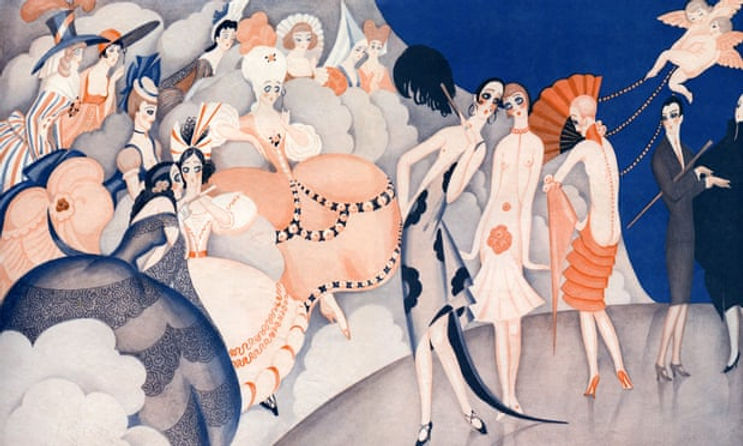
*

*

*

*

*

*

*
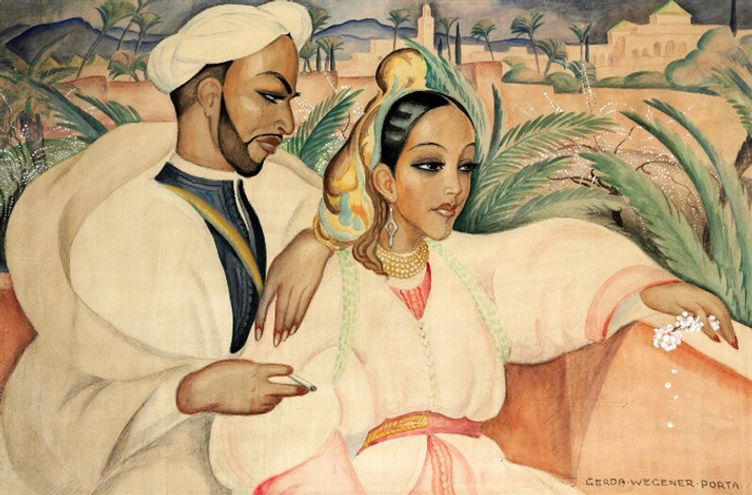
*

*

*

*

*

*

*
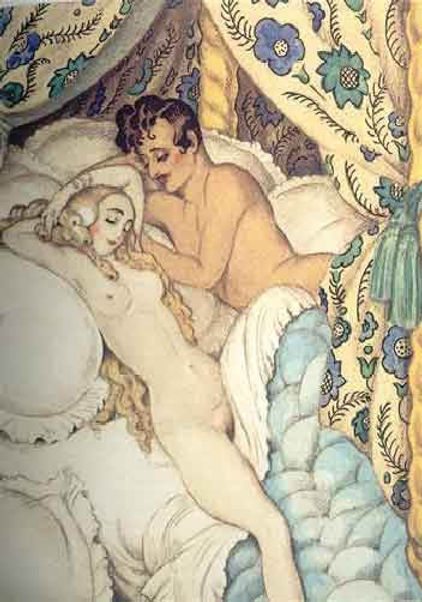
*
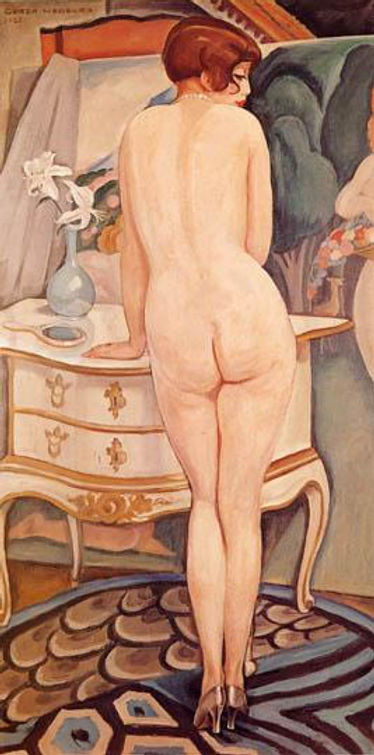
*

*

*
